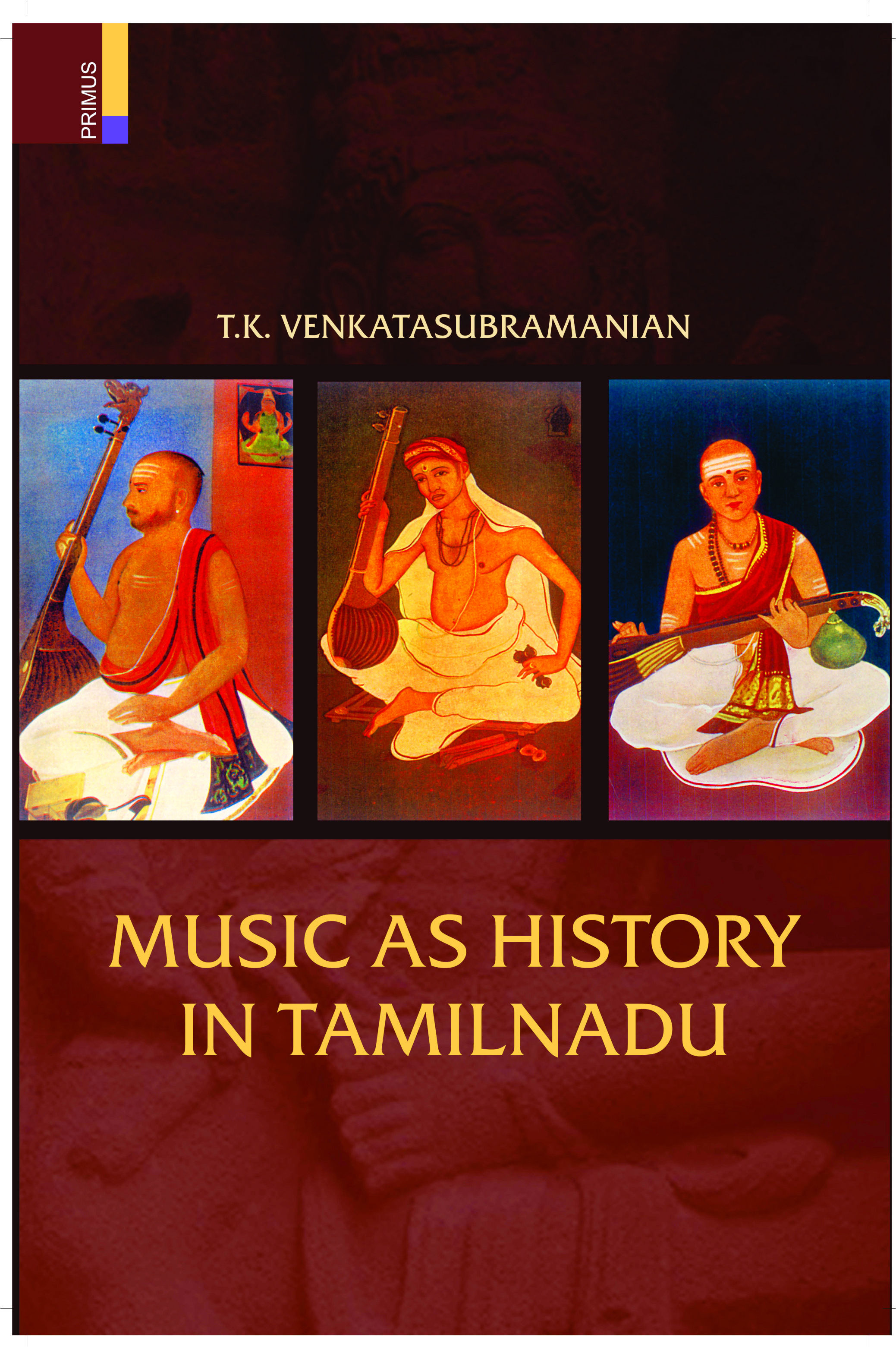
INFORMATION
- AUTHOR : T K Venkatasubramanian
- HB ISBN : 978-93-80607-06-1
- Year : 2010
- Extent : xvi + 158 pp.
- Discount available on checkout
- Usually dispatched within 3 to 5 working days.
Music as History in Tamilnadu
| HB ₹ 695 . $ . ₤ |
PB ₹ . $ . ₤ |
|
| POD ₹ . $ . ₤ |
e-Book ₹ . $ . ₤ |
INFORMATION
- AUTHOR – T K Venkatasubramanian
- ISBN – 978-93-80607-06-1
- Year – 2010
- Extent: 400 + 40 coloured illustrations
- 10% discount + free shipping
- Usually dispatched within 3 to 5 working days.
Recent scholarship on the history of music in South Asia has examined the processes by which music as an art form was reinvented for nationalist purposes, yet, the disciplined study of music (and its aesthetics) remains only a few centuries old. Studying music through a historical lens has opened new approaches to interdisciplinary studies. Music as History in Tamilnadu examines how history can be interpreted through aesthetics and music and vice versa.
Musicologists focus on the study of musical activity, while ethnomusicologists examine this activity first-hand using the ‘field’ research methods of cultural anthropology. The historian’s task, then, is to interpret the musical past as part of cultural production and thereafter relate music to general historical trends. This collection of essays seeks to establish the interdisciplinarity between music (the Karnatak system) and the history of Tamilnadu, south India.
The Author
T K Venkatasubramanian teaches at the Department of History, University of Delhi. He is the author of Political Change and Agrarian Tradition in South India, 1600-1800 (1986), Environment and Urbanisation in Early Tamilakam (1988), Societas to Civitas: Evolution of Political Society in South India (1993) and co-author of Rhythm in Historical Cognition (1993). He has also co-edited Negotiating India’s Past: Essays in Memory of Partha Sarathi Gupta (2003) and edited Telephonic Counselling in University System (2005).
‘Musical heritage … territorially binds all the four linguistic States of southern India. The book traces the historical growth of music as a classical art in the Tamil-speaking areas of south India …. An interesting dimension of this evolutionary process is the deification of the king, with musical pieces singing his glory and attributing divinity to his persona.’— The Hindu
Recent scholarship on the history of music in South Asia has examined the processes by which music as an art form was reinvented for nationalist purposes, yet, the disciplined study of music (and its aesthetics) remains only a few centuries old. Studying music through a historical lens has opened new approaches to interdisciplinary studies. Music as History in Tamilnadu examines how history can be interpreted through aesthetics and music and vice versa.
Musicologists focus on the study of musical activity, while ethnomusicologists examine this activity first-hand using the ‘field’ research methods of cultural anthropology. The historian’s task, then, is to interpret the musical past as part of cultural production and thereafter relate music to general historical trends. This collection of essays seeks to establish the interdisciplinarity between music (the Karnatak system) and the history of Tamilnadu, south India.
The Author
T K Venkatasubramanian teaches at the Department of History, University of Delhi. He is the author of Political Change and Agrarian Tradition in South India, 1600-1800 (1986), Environment and Urbanisation in Early Tamilakam (1988), Societas to Civitas: Evolution of Political Society in South India (1993) and co-author of Rhythm in Historical Cognition (1993). He has also co-edited Negotiating India’s Past: Essays in Memory of Partha Sarathi Gupta (2003) and edited Telephonic Counselling in University System (2005).
‘Musical heritage … territorially binds all the four linguistic States of southern India. The book traces the historical growth of music as a classical art in the Tamil-speaking areas of south India …. An interesting dimension of this evolutionary process is the deification of the king, with musical pieces singing his glory and attributing divinity to his persona.’— The Hindu




